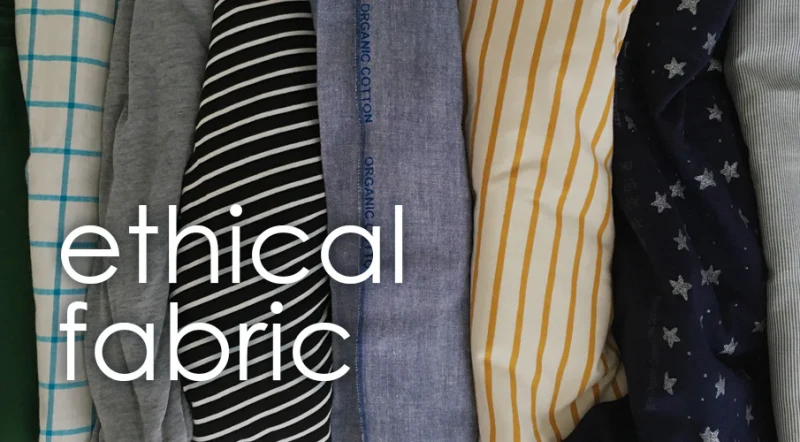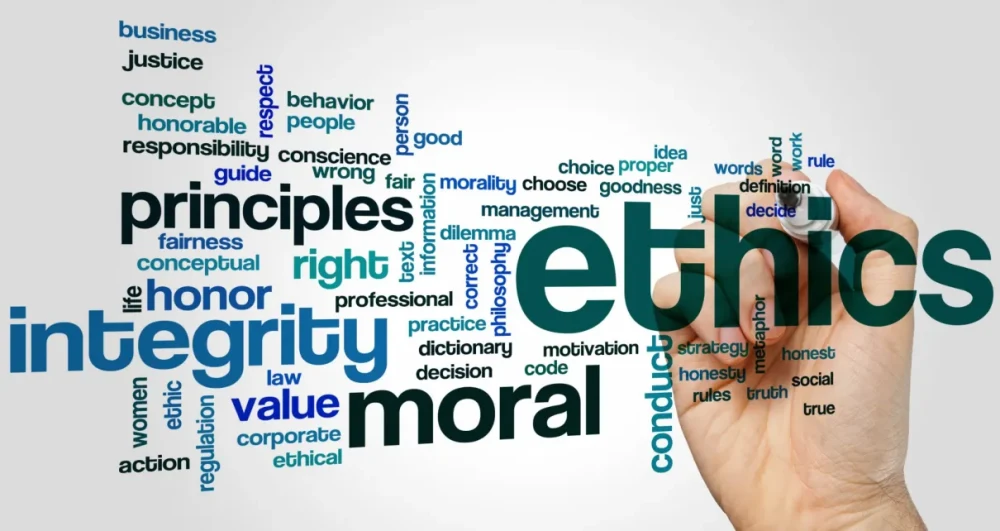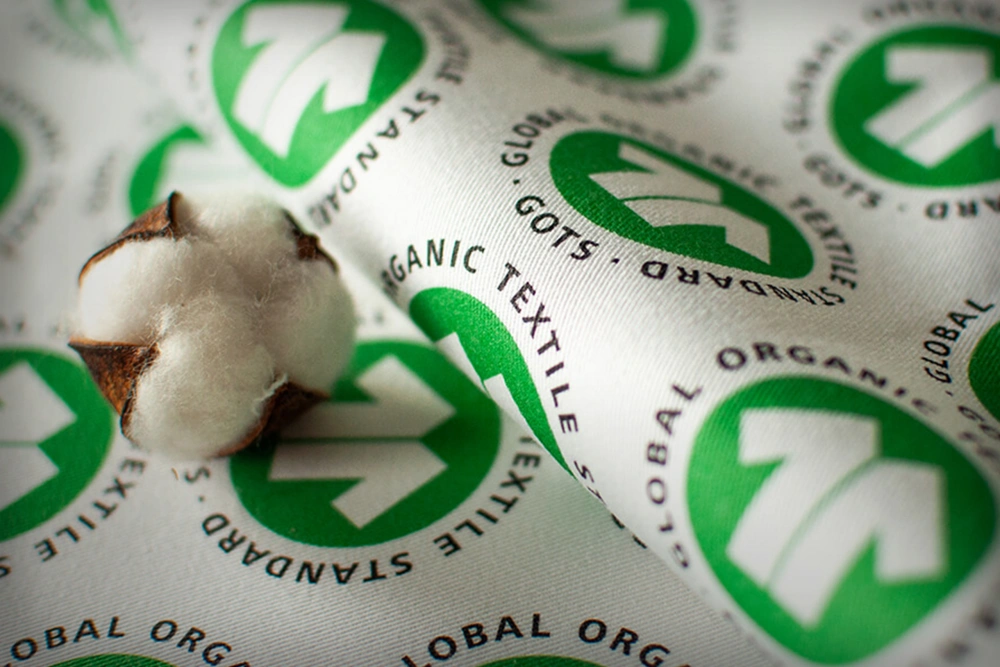Choosing ethical fabric suppliers is more important than ever in 2025. Consumers everywhere are seeking fabrics that not only protect the planet but also support fair labor practices. By selecting ethical fabric suppliers, you actively help reduce pollution and waste. Consider these key facts:
Textile production accounts for 10% of global carbon emissions.
Over 430 million people are employed in the fashion industry, so ethical fabric suppliers have the power to improve countless lives.
Only 8% of fibers currently come from recycled sources.
Aspect | Benefit |
|---|---|
Fair Labor | Safe workplaces, fair wages |
Environmental Impact | Less water use, fewer chemicals |
Your choices play a crucial role in driving sustainability within the fashion industry. Every time you opt for ethical fabric suppliers, you contribute to meaningful, positive change.
Key Takeaways
Choosing ethical fabric suppliers helps protect the planet and supports fair wages and safe workplaces.
Look for certifications like GOTS, OEKO-TEX, and Fair Trade to ensure fabrics meet high environmental and social standards.
Top suppliers worldwide use organic, recycled, and innovative materials to reduce pollution and waste.
Verify supplier claims by asking for transparency, checking certifications, and reviewing audits to avoid greenwashing.
Building strong relationships with ethical suppliers leads to better quality, custom options, and reliable sourcing.
Ethical Fabric Suppliers 2025

Global Leaders
When you look for ethical fabric suppliers in 2025, you’ll find several global leaders setting the standard for the industry. These suppliers focus on transparency, fair labor, and eco-friendly production. Here are some of the top names you should know:
Indian Mills: India leads the way with mills that hold triple certifications like GOTS, OEKO-TEX®, and Fair Trade. These suppliers use organic cotton and hemp, support fair wages, and often partner with major brands. You can trust their commitment to both people and the planet.
French Hemp Producers: France is famous for luxury sustainable fabrics. French suppliers produce premium GOTS-certified organic hemp, perfect for high-end fashion and home textiles. Their focus on quality sustainable fabrics and ethical sourcing makes them a top choice.
Dutch Innovators: The Netherlands stands out for sustainable innovation. Dutch suppliers use hybrid solar-wind energy systems, saving over 60% in energy. They offer blended hemp fabrics for interiors and use digital traceability tools, so you always know where your fabrics come from.
U.S. Organic Suppliers: In the United States, suppliers benefit from strong hemp farming regulations. They focus on locally sourced organic fabrics, including cotton and hemp, which helps reduce your carbon footprint. Many also offer reclaimed and deadstock fabrics, making them a go-to for eco-conscious brands.
South Korean Specialists: South Korea excels in high-performance hemp textiles. These suppliers use advanced weaving techniques to create durable, UV-resistant fabrics for sportswear and outdoor gear.
🌱 Tip: Always check for certifications like GOTS, OEKO-TEX®, and Fair Trade when choosing ethical fabric suppliers. These labels guarantee that your fabrics meet strict environmental and social standards.
Notable Newcomers
The world of sustainable fabric manufacturers keeps growing. In 2025, several newcomers are making waves with fresh ideas and bold commitments to sustainability. Here are a few you should watch:
Regenerative Startups: New companies in Europe and North America are using regenerative agriculture, like cover cropping and no-till farming, to grow organic fibers. These methods restore soil health and reduce chemical use.
Tech-Driven Suppliers: Some Asian startups now use blockchain and QR code tracking. This technology lets you trace your fabrics from farm to finish, ensuring transparency and trust.
Reclaimed and Deadstock Champions: New suppliers in the U.S. and Europe focus on reclaimed and deadstock fabrics. They rescue unused textiles from factories and fashion houses, giving them a second life. This approach helps you reduce waste and find unique, limited-edition materials.
Eco-Innovation Hubs: In Australia and Scandinavia, small manufacturers experiment with waterless dyeing, recycled polyester, and plant-based dyes. These sustainable fabric manufacturers push the boundaries of what’s possible with natural and reclaimed materials.
You’ll notice that these newcomers often blend technology with tradition. They offer organic fabrics, recycled fibers, and even biodegradable options like Tencel and Modal. Their focus on deadstock fabrics and reclaimed materials means you can create with a clear conscience.
Fanda Fabrics Overview
If you want a supplier that combines tradition, innovation, and a strong ethical foundation, Fanda Fabrics deserves your attention. Based in Qingdao, China, Fanda Fabrics has over 20 years of experience as one of the leading sustainable fabric manufacturers in Asia.
You’ll find a wide range of fabrics for fashion, quilting, and home décor, all crafted with care for people and the planet.
Fanda Fabrics stands out for several reasons:
Sustainability Initiatives: Fanda Fabrics uses renewable energy like solar and wind power in its production. The company employs water-saving and waterless dyeing methods, reducing both water and chemical pollution. You’ll also find fabrics made from recycled fibers and organic cotton, sourced from trusted partners.
Certifications and Standards: Fanda Fabrics holds certifications such as OEKO-TEX and GOTS. These ensure that your fabrics meet strict environmental and social criteria. The company also supports the Better Cotton Initiative, which promotes responsible farming and fair labor.
Product Range: You can choose from a variety of sustainable fabrics, including:
Organic Poplin Fabric: Made from 100% organic cotton, this fabric is soft, breathable, and perfect for sensitive skin. It’s ideal for clothing, home goods, and eco-friendly crafts.
Cotton Quilting Fabric: Fanda Fabrics offers high-quality cotton quilting fabrics in vibrant colors and patterns. These are great for quilts, blankets, and creative projects.
Merino Wool Fabric: This luxurious, natural fabric is soft, warm, and biodegradable. It’s perfect for fashion, sportswear, and outdoor gear.
Bright Quilt Fabric and Batik Patchwork Fabric: These options let you add color and artistry to your projects, all while supporting ethical production.
Customization and Service: Fanda Fabrics accepts small batch customizations and delivers quickly. You can order as little as one meter, making it easy to test new ideas or fill small orders. The company works with major retailers and designers worldwide, so you know you’re in good hands.
Fanda Fabrics’ commitment to ethical production goes beyond just making sustainable fabrics. The company uses regenerative farming techniques, energy-efficient equipment, and advanced recycling systems. You can feel confident that your choices support both environmental health and fair labor.
🧵 Note: When you choose Fanda Fabrics, you join a global movement toward ethical fabric suppliers. You help shape a future where quality, sustainability, and innovation go hand in hand.
What Is Ethical?

Key Principles
When you look for ethical fabric suppliers, you want to see clear values in action. These suppliers put people and the planet first. You can spot them by their commitment to fair labor, safe workplaces, and eco-friendly fabric choices.
They use sustainable fabrics and natural fibers, making sure their production methods protect workers and the environment.
Here’s a quick table to help you understand the main principles:
Principle | Explanation |
|---|---|
Fair labor practices | Workers get fair treatment and safe conditions. |
Sustainable production | Factories use less water and energy, and they cut down on waste. |
Safer, more sustainable materials | Suppliers avoid toxic chemicals and choose recycled or Bluesign-approved fabrics. |
Responsible chemical management | Companies remove harmful substances and follow strict health standards. |
Transparency & supply chain accountability | You can trace every step, from farm to finished product, with digital tools and third-party checks. |
You might notice that ethical and sustainable fabrics often come with certifications like GOTS or OEKO-TEX. These labels mean the supplier follows strict rules for both social and environmental responsibility.
Environmental Impact
Choosing sustainable fabrics makes a big difference for the planet. You help reduce pollution and save natural resources. Suppliers who use sustainable materials like organic cotton, bamboo, and hemp lower their carbon footprint and protect biodiversity. They also cut down on plastic waste by using recycled fibers.
🌎 When you pick environmentally friendly fabrics, you support water conservation and cleaner air. Brands that care about sustainability in fashion use renewable energy and waterless dyeing. You can feel good knowing your choices help keep the earth healthy.
Social Responsibility
Ethical production techniques go beyond the environment. They make sure workers get fair wages and safe working conditions.
Suppliers who use eco-friendly materials also support gender equality and protect against discrimination. You see these values in companies that offer living wages, safe factories, and freedom for workers to speak up.
Ethical sourcing means you support families and communities.
You help stop child labor and forced labor.
You encourage brands to create durable, repairable products that last longer.
When you choose ethical and sustainable fabrics, you join a movement that values people and the planet. Your choices matter. You help build a better future for everyone.
Certifications
When you shop for ethical fabrics, certifications help you know what you’re really getting. These labels show that a supplier meets strict standards for safety, sustainability, and fair treatment.
Certifications also build trust. They make it easier for you to choose fabrics that match your values. Here’s a quick look at the most recognized certifications for 2025:
Certification Name | Focus Areas & Criteria | Key Takeaways |
|---|---|---|
GOTS (Global Organic Textile Standard) | Organic material sourcing, ethical and sustainable processing, and fair labor practices | Trusted globally; ensures organic cotton and ethical manufacturing processes |
OEKO-TEX® STANDARD 100 | Safety from harmful substances in textiles | Ensures textiles are free from harmful chemicals, protecting consumers and workers |
Fair Trade | Ethical production, fair wages, safe working conditions | Guarantees fair labor and supports community development |
Certifications like these give you peace of mind. They also help fabric suppliers stand out in a crowded market. When you see these labels, you know the fabric meets high standards for quality and ethics.
GOTS
GOTS stands for Global Organic Textile Standard. You’ll see this label on fabrics made from organic fibers, like cotton. GOTS covers the whole supply chain, from the farm to the finished product. It checks for organic farming, safe processing, and fair labor.
Third-party auditors visit factories to make sure everyone follows the rules. You can verify a GOTS certification by checking the supplier’s certificate number on the official GOTS database. Always ask for documentation and look for full traceability.
Fair Trade
Fair Trade certification means workers get fair wages and safe conditions. It also supports community projects and bans child labor. You’ll find Fair Trade labels on many eco-friendly fabric options. To check if a fabric is truly Fair Trade, look for certificates from trusted groups like Fairtrade International.
You can also search the official Fair Trade database or ask your supplier for proof. This helps you avoid greenwashing and makes sure your purchase supports real change.
OEKO-TEX
OEKO-TEX STANDARD 100 is all about safety. This certification tests fabrics for harmful chemicals, like heavy metals and formaldehyde. If you see this label, you know the fabric is safe for you and the people who made it.
OEKO-TEX also offers MADE IN GREEN, which adds checks for environmental and social responsibility. To verify OEKO-TEX, ask for the certificate and check the number on the OEKO-TEX website. This way, you know your fabric is truly safe and responsibly made.
📝 Tip: Always cross-check certifications in official databases and ask for clear documentation. This helps you avoid false claims and ensures you get what you pay for.
Certifications do more than protect you—they boost trust and help brands build a good reputation. When you choose certified fabrics, you support a better, safer textile industry.
Sustainable Fabric Manufacturers

North America
You’ll find some of the most innovative sustainable fabric manufacturers in North America. These companies focus on ethical sourcing, local production, and eco-friendly materials. Here’s a quick look at a few leaders:
Manufacturer | Products | Green Practices and Ethical Claims |
|---|---|---|
Maker’s Row | Custom fabrics, organic cotton, sustainable textiles | Ethical sourcing, local manufacturing, and ethical labor practices |
Wazoodle | Organic cotton, bamboo, recycled polyester | Water-saving techniques, use of solar energy |
Hemp Fortex | Hemp fabric, organic cotton blends, recycled polyester | Use of low-impact dyes, sustainable farming practices |
ZS Fabrics | Linen, organic cotton, eco-friendly blends | Zero-waste production, environmentally friendly factories, and safe materials |
Organic Fabric Company | Hemp fabric, organic blends, linen | GOTS and OEKO-TEX certifications, zero-waste production, and use of recycled fabrics |
These sustainable fabric manufacturers often hold certifications like GOTS and OEKO-TEX. You can even request virtual tours or visit their factories to see their ethical practices in action.
Europe
Europe leads the way in transparency and eco-friendly innovation. Many sustainable fabric manufacturers here offer organic cotton, linen, hemp, and recycled materials. Check out this table for some top picks:
Manufacturer | Location | Sustainable/Ethical Practices |
|---|---|---|
Ray Stitch | London, UK | Organic cotton, linen, Tencel; sewing classes for eco-fashion designers |
Schone Stoffen | Amsterdam, Netherlands | Organic cotton, linen, wool, recycled polyester; high ethical standards |
Stoffbotin | Berlin, Germany | GOTS-certified fabrics; slow fashion; reduced environmental impact |
Studio Spatz | Rotterdam, Netherlands | Organic, GOTS-certified, recycled fabrics; renewable energy; minimal waste |
Dragonfly Fabrics | Edinburgh, UK | Organic cotton, linen, wool; GOTS certification; ethical sourcing |
Ecological Textiles | France | Natural, organic, recycled fibers; transparency and traceability |
You’ll notice many European suppliers focus on traceability and offer workshops to help you learn about sustainable fabrics. Regional laws, like the EU’s CSRD, push these companies to report on climate action and labor conditions.
Asia-Pacific
Asia-Pacific is home to some of the fastest-growing sustainable fabric manufacturers. Companies here use organic cotton, bamboo, and recycled materials. They also invest in certifications and traceability.
Pahartah Fashion LLP (Suvetah), India: GOTS and OEKO-TEX certified, sources organic cotton from certified farms, and offers full farm-to-fabric traceability.
Asia Pacific Rayon, Indonesia: Holds OEKO-TEX, USDA Biobased, and PEFC certifications. They use blockchain for transparency and support community projects.
Many manufacturers in this region comply with global standards like ISO 14001 and OHSAS 18001, ensuring safe, sustainable operations.
You’ll see a strong focus on natural fibers and recycled content. These sustainable fabric manufacturers often serve global markets and meet strict safety and environmental rules.
Fanda Fabrics in Asia
Fanda Fabrics stands out as a leading sustainable fabric manufacturer in Asia. You get access to a wide range of fabrics, including organic poplin, cotton quilting, merino wool, and vibrant batik patchwork.
Fanda Fabrics uses renewable energy, water-saving dyeing, and advanced recycling systems. The company holds certifications like OEKO-TEX and GOTS, so you know your fabrics meet high ethical standards.
You can order as little as one meter or request custom designs. Fanda Fabrics supports both small and large orders, making it easy for you to experiment or scale up.
The company’s commitment to quality, innovation, and customer satisfaction has earned it partnerships with major global brands. If you want sustainable fabrics that blend tradition with modern technology, Fanda Fabrics is a top choice.
🌏 Tip: When you choose sustainable fabric manufacturers like Fanda Fabrics, you support ethical labor, environmental protection, and the use of reclaimed and deadstock fabrics. Your choices help shape a better future for the textile industry.
Supplier Types
When you look for ethical and sustainable fabric stores, you’ll notice that suppliers fall into three main types. Each type offers unique benefits for sourcing fabrics and supporting your sustainability goals.
Retail
Retail suppliers make it easy for you to buy fabrics in small quantities. You can walk into a store or shop online and pick out just what you need for a project.
These suppliers often carry a wide variety of colors and patterns, so you get plenty of choices. Retail stores are perfect if you want to experiment or need only a few yards. You might pay a bit more per yard, but you get flexibility and convenience.
Wholesale
Wholesale suppliers work best when you need fabrics in bulk. They process unfinished fabrics and offer printed designs, specialty effects, and a range of colors. You get cost savings, sometimes up to 50% off, and perks like free shipping for large orders.
Wholesale suppliers focus on commercial quality, so you can count on durability and reliability. If you run a business or need a consistent supply, wholesale is the way to go.
Aspect | Description | Benefit |
|---|---|---|
Cost Savings | Discounts for bulk orders | Lower production costs |
Variety | Wide range of fabrics and finishes | Supports diverse product lines |
Quality | Commercial-grade materials | Ensures customer satisfaction |
Specialty
Specialty suppliers offer fabrics with unique features. You’ll find options like waterproof, fire-resistant, or antibacterial textiles. These suppliers use special treatments or fibers to meet specific needs, such as outdoor gear or medical clothing.
Specialty stores often showcase their collections at trade shows, highlighting the latest in sustainable and eco-friendly fabrics. If you want something truly unique, specialty suppliers can help you stand out.
Specialty fabrics meet niche market needs.
Sustainability is a growing focus, with more brands choosing eco-friendly options to boost their image and support green industry growth.
Fanda Fabrics Customization
Fanda Fabrics gives you the best of all worlds. You can order as little as one meter or place a large bulk order. The company offers flexible order quantities and custom designs, so you get exactly what you want.
You can handpick from ethically sourced fabrics, choose custom colors, and request special finishes. Fanda Fabrics supports creative projects and large-scale production alike.
You’ll work with expert designers who help bring your ideas to life. The team guides the reduction of waste and optimization of your manufacturing process. Customization services promote transparency and traceability, making sure your fabrics align with your sustainability values.
Fanda Fabrics’ responsive customer service and competitive pricing make it easy for you to source ethical fabrics, no matter the size of your order.
💡 Tip: Customization lets you create unique products while supporting responsible sourcing and sustainable practices.
Sourcing Sustainable Fabric
Verifying Claims
You want to make sure your fabric supplier is truly ethical. Start by asking for clear details about their sourcing and supply chain. Request certifications like GOTS, OEKO-TEX, or Fair Trade. These third-party labels prove the supplier meets strict standards. Communicate directly with suppliers.
Ask about their labor conditions and environmental policies. If possible, visit their factories or warehouses. You can see how they treat workers and manage waste. Check for third-party audits and read independent reports. Look up reviews and ask other brands for recommendations.
Stay alert for greenwashing. Demand specific data and traceability. Avoid suppliers who give vague answers or unsupported claims.
Here’s a quick checklist for verifying ethical claims:
Request transparency about sourcing and sustainability goals.
Check for valid certifications.
Communicate directly about labor and environmental practices.
Visit production sites if possible.
Review third-party audits and ratings.
Research supplier reputation.
Watch out for greenwashing.
🕵️♂️ Tip: New technologies like blockchain and digital product passports make it easier to track materials and confirm ethical sourcing.
Building Relationships
Building a strong relationship with your supplier pays off. You get consistent quality and better prices for bulk orders. Reliable suppliers help you meet deadlines and avoid delays. You can ask for custom fabrics and get early access to new materials. Open communication leads to trust and smoother negotiations.
When you work with ethical suppliers like Fanda Fabrics, you support innovation and sustainability. Long-term partnerships also simplify your sourcing process and reduce paperwork.
Trust grows with regular contact.
You can negotiate better terms.
Bulk buying saves money.
Custom solutions set your products apart.
Reliable supply keeps your business running smoothly.
Staying Informed
You need to keep up with the latest trends in sustainable fabric sourcing. Follow industry news and join sustainability alliances. Look for updates on new materials like recycled polyester, bio-based fibers, and biodegradable textiles. Watch for innovations in waterless dyeing and green chemistry.
Use digital tools to track supply chain transparency. Attend trade shows and webinars to learn about new technologies and regulations. Collaboration between brands, suppliers, and governments drives progress. Your choices help push the industry toward better practices.
🌟 Staying informed helps you make smart decisions and support a more ethical textile industry.
Conclusion
Choosing ethical fabric suppliers makes a real difference for people and the planet. You help reduce water use, energy consumption, and waste, while supporting fair wages and safe workplaces. Check out the table below to see how your choices compare:
Impact Category | Conventional Suppliers | Ethical Suppliers |
|---|---|---|
Water Usage | High | Up to 96% less |
Labor Conditions | Poor | Fair, safe |
Transparency | Limited | High |
You can explore suppliers like Fanda Fabrics and start sourcing responsibly. Got a favorite ethical supplier or a question? Drop it in the comments! Let’s build a more sustainable textile industry together. 🌱
FAQ
What makes a fabric supplier ethical?
You want to see fair labor, eco-friendly production, and transparency. Ethical suppliers use safe materials, pay workers fairly, and show you where their fabrics come from.
How do you check if a fabric is truly sustainable?
Look for certifications like GOTS, OEKO-TEX, or Fair Trade. Ask for documentation. You can also check supplier websites for details about their sourcing and production methods.
Can you order small quantities from ethical suppliers?
Yes! Many ethical suppliers, including Fanda Fabrics, let you order as little as one meter. This helps you test fabrics or start small projects without waste.
💡 Tip: Small orders make it easy to experiment with new sustainable materials.
Why should you choose organic cotton or Merino wool?
Organic cotton and Merino wool are gentle on your skin and better for the planet. You get comfort, durability, and peace of mind knowing your choice supports responsible farming.
How do you customize fabrics with Fanda Fabrics?
You can request custom colors, patterns, or finishes. Fanda Fabrics works with you to create unique designs. Just reach out to their team and share your ideas.
Customization Option | What You Get |
|---|---|
Colors | Match your brand style |
Patterns | Unique designs |
Finishes | Special treatments |
